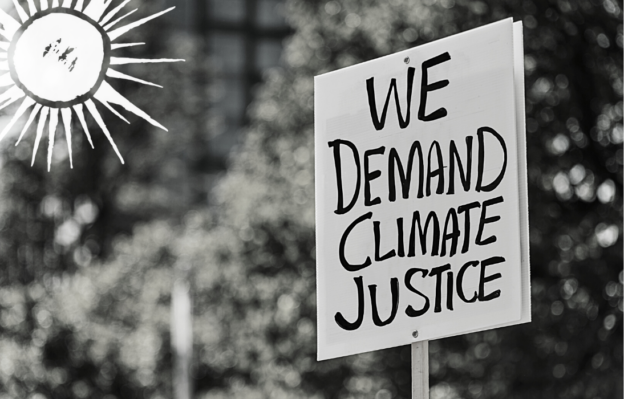
Laudato Si Week Calls Us To Recognize Our Interrelatedness
Virginia Schilder
May 24, 2022
This is part one in a three part reflection on Laudato Si Week (May 22-29, 2022), which celebrates the anniversary of Pope Francis’ encyclical on integral ecology and care for creation by inviting all people of goodwill and prayer and study to on how they can tackle the climate crisis.
Ecological justice is about more than ending climate change and restoring damaged landscapes. It is about recognizing our interrelatedness and interdependence with one another, with land, air, and water, and with the non-human life forms alongside us — and then creating social and economic structures that affirm this reality.
At NETWORK, ecological concern permeates all of the policy areas we work in. As we promote the Build Anew agenda specifically, what does it mean to prioritize ecological health and cultivate an ecological orientation?
On one level, it means that our policies must always keep ecological impact in mind. No policy can be fully just if it comes at the expense of our lands, waters, air, or other living beings. This is especially true for job creation, which does not truly help our communities if the new jobs are in the business of exploiting the very resources we need to live. It is critical that as communities grow – with more housing, schools, libraries, parks, and food markets – that development is focused on meeting real needs instead of ceaseless land conversion that depletes natural spaces, pushes out long-term inhabitants (both human and non-human), and accelerates pollution.
Dr. Kate Ward, assistant professor of theology at Marquette University, wrote last year in Connection magazine, “Integral development is a distinctively Catholic reassessment of economic development. Just like national budgets can be both moral and immoral documents, so also economic development can impede or impel authentic human development.”
Rather than alienate us from ecosystems, all forms of development should strengthen our ecological relationships and uphold ecological well-being. All policies have ecological effects, meaning ecological impact should be at the forefront of all policy discussions. But going even further, an ecological orientation in our policy work means a holistic, multi-issue commitment to transforming the structures that denigrate human beings and the Earth alike.
The intertwining exploitation of people and land is evident in the way that women, the economically marginalized, and Black, Brown, and Indigenous communities are disproportionately harmed by ecological destruction. While climate change affects everyone, these populations are made especially vulnerable to inadequate infrastructure, poor water quality, deforestation, hazardous waste, and increased exposure to climate change-driven disasters and displacement.
Environmental racism refers to the reality that communities of color bear most of the burden of environmental degradation. Communities of color frequently face restricted access to clean air and water, green spaces, and nutritious and locally-sourced food. These forms of racism severely threaten the health of communities of color, especially as toxic waste facilities and highways are overwhelmingly (and intentionally) built in Black and Brown neighborhoods.
Environmental racism implicates housing, food, public health, and economic policy. Measures such as creating accessible, affordable housing and ending racist zoning practices have not only racial but also significant ecological justice dimensions.
Virginia Schilder, a graduate student attending divinity school in Massachusetts, completed a one-year fellowship with NETWORK’s Communications team in early May 2022.







